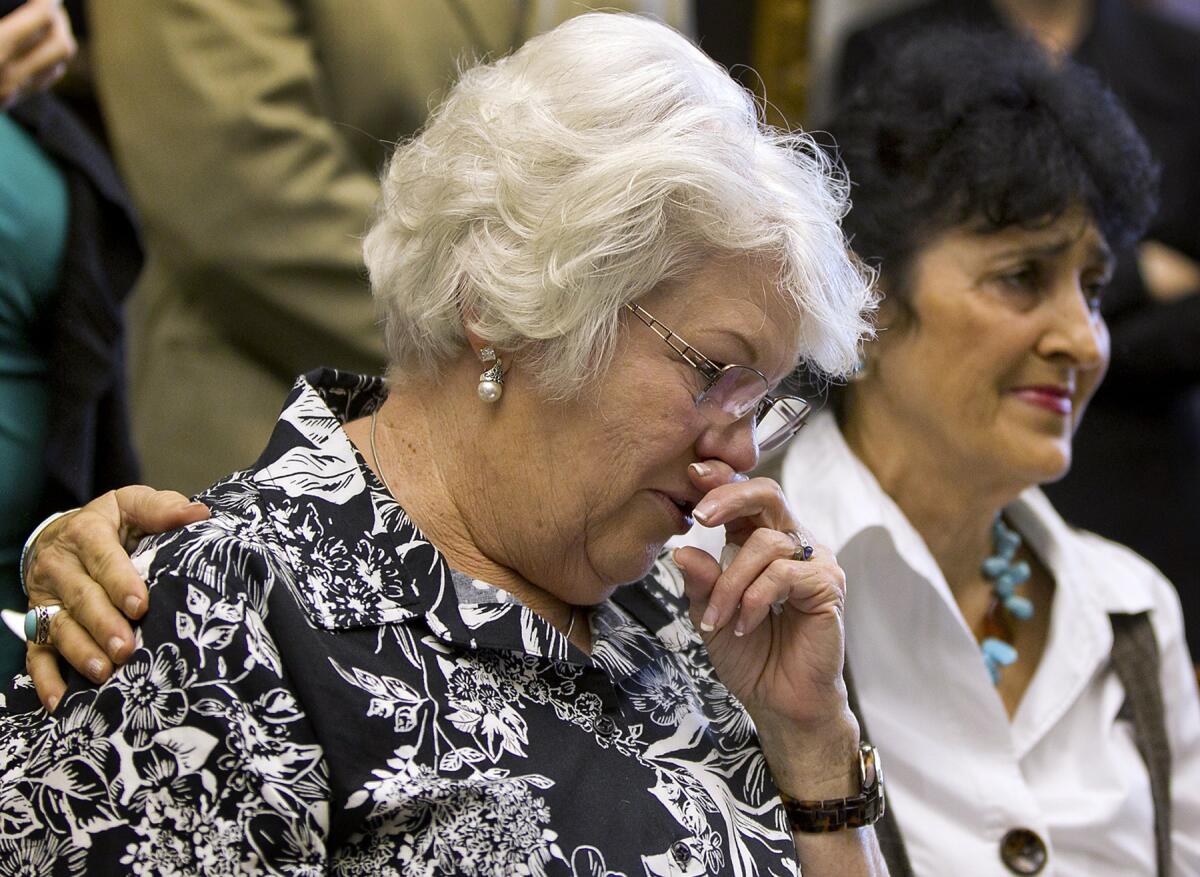Lawyers push posthumous pardon in Texas arson case

HOUSTON -- Attorneys for the family of a man executed in Texas appealed to the governor and state parole board this week to reconsider the case in light of new evidence that he was wrongfully convicted of killing his three young daughters.
“It’s astonishing that 10 years after Todd Willingham was executed we are still uncovering evidence showing what a grave injustice this case represents,” said Barry Scheck, co-director of the New York-based Innocence Project assisting with the appeal. “The Texas clemency system is severely broken and must be fixed.”
Cameron Todd Willingham, 36, was put to death a decade ago for setting a 1991 house fire in Corsicana, about 55 miles south of Dallas, that killed his children. His case became a national lightning rod for criticism of outmoded arson investigations, so-called “junk science.”
Exonerations in such cases are rare, but have become more common due to advances in the way fire investigators analyze burn patterns and other evidence. Since the first DNA exoneration in 1989, there have been 1,324 exonerations nationwide, including 11 arson cases, according to the National Registry of Exonerations.
Two years ago, the Texas fire marshal convened a state panel to review questionable arson convictions with the help of the Texas Innocence Project. One inmate serving a life sentence for setting a 1986 fire that killed his two young stepsons has already been granted a new trial.
New advocates who insist Willingham was innocent are arguing that recently discovered evidence suggests his prosecutor secretly brokered a deal with a jailhouse snitch to testify in exchange for a reduced sentence.
Willingham’s conviction was primarily based on testimony by the informant, Johnny Webb, who said Willingham had confessed to the crime while they were cellmates. The conviction was also based on an analysis of the fire by arson investigators, which advocates have since challenged based on new fire science.
Now lawyers in Texas and with the New York-based Innocence Project say they have found evidence Webb made a deal with prosecutor John Jackson, who later became a state judge and has since retired. During the trial, Jackson denied making such a deal.
Jackson did not return calls Friday.
Willingham’s lawyers gained access to Webb’s file last fall and argue that a handwritten note they unearthed shows Jackson did make a deal.
The note, which was posted online by the lawyers, said Webb’s charges were to be downgraded from first- to second-degree robbery, “based on coop in Willingham.”
Webb has since recanted his testimony in the case.
The Innocence Project submitted the note, which is not dated or signed, in a new filing to the board Friday asking that it be included as part of their initial appeal filed in September. They have requested that Willingham be pardoned.
After the board decides, the matter will go to Gov. Rick Perry, or whoever succeeds him in 2015. Perry has called Willingham “a monster” and appears convinced that he was guilty.
Atty. Gen. Greg Abbott, the Republican campaigning to replace Perry, barred the state Forensic Science Commission from investigating the Willingham case three years ago because it occurred before the commission was created in 2005.
Follow L.A. Times National on Facebook
ALSO:
Kerry Kennedy not guilty in misdemeanor drugged driving case
Hmong vets suffer setback in quest for burial at U.S. cemeteries
Mississippi man, kicking in body bag, back from the dead. Sort of.
Twitter: @mollyhf
More to Read
Sign up for Essential California
The most important California stories and recommendations in your inbox every morning.
You may occasionally receive promotional content from the Los Angeles Times.











